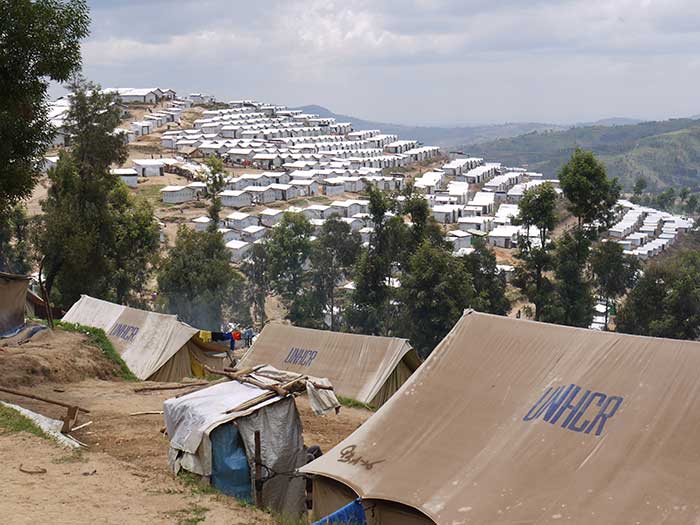web_oxfam_8097455453_5575c77457_o.jpg

A refugee camp in Rwanda. Credit: Oxfam
Auditors said the funds are meeting the challenges faced by refugees in Africa’s Great Lakes region but could cost too much to deliver due to weak management. They called for more information from the United Nations and its partner agencies on the way the money is spent.
“I am concerned that the [European] Commission does not have the figures it needs to check whether the aid is being delivered in the most efficient and cost-effective way,” explained Karel Pinxten, the ECA member responsible for the report.
The auditors examined the commission’s €300m in humanitarian support for the Democratic Republic of Congo, Uganda, Rwanda, Burundi and Tanzania between 2011 and 2015.
While the ECA concluded the aid was “in general, managed effectively”, in a context of mounting needs and increasingly limited funds there was not enough emphasis on achieving efficiency.
Auditors said: budgets were not detailed enough and there were no assessments of whether proposed costs were reasonable; there was a lack of documentary evidence to determine geographical priorities and assess project proposals; and that reports from the commission’s field staff were “not sufficiently comprehensive”.
Around half of the EU’s aid was spent through UN agencies, but when the UN sub-contracted its activities no data was made available on how much was actually spent on the beneficiaries. Reports from partners were also “frequently late”, which the auditors said “limited their usefulness”.
“The more links there are in the chain between the EU taxpayer and those in need, the more difficult it becomes,” said Pinxten.
“The commission should press UN agencies, together with NGOs, for more information on how money is being spent. Otherwise, this aid risks being too expensive.”
The auditors said it was not possible to determine whether the projects chosen complied with relevant criteria, if the most appropriate projects were selected and whether problems were satisfactorily resolved due to inadequate recording of issues, priorities and project assessments.
While the ECA deemed the results for the projects examined were overall “satisfactory”, they noted some examples where this was not the case.
One partner managed to spend most of its budget while only achieving a small percentage of planned results, and in a few cases the justification for time extensions and additional budgets “was not apparent”.
They added that there was no reporting done on a more global level to provide an overview of results and lessons learnt within the context of the EU’s international humanitarian aid implementation plan.
Auditors also noted there were very few examples of global priorities in humanitarian aid, such as merging the humanitarian relief and development spheres, being applied in practice.
“Without very actively pursuing this goal there is a danger that opportunities to move from humanitarian aid to development aid will be missed,” the auditors warned.












